20 May 2025
Music education is more than just learning notes, scales, and theory. Performance is where everything comes to life! It's the heartbeat of music education, transforming technical practice into real-world expression. Whether it's playing an instrument, singing in a choir, or participating in an ensemble, performance is a crucial part of a musician's journey.
But why does performance matter so much? What does it bring to the learning process? In this article, we’ll break down the essential role that performance plays in music education and why it should never be overlooked. 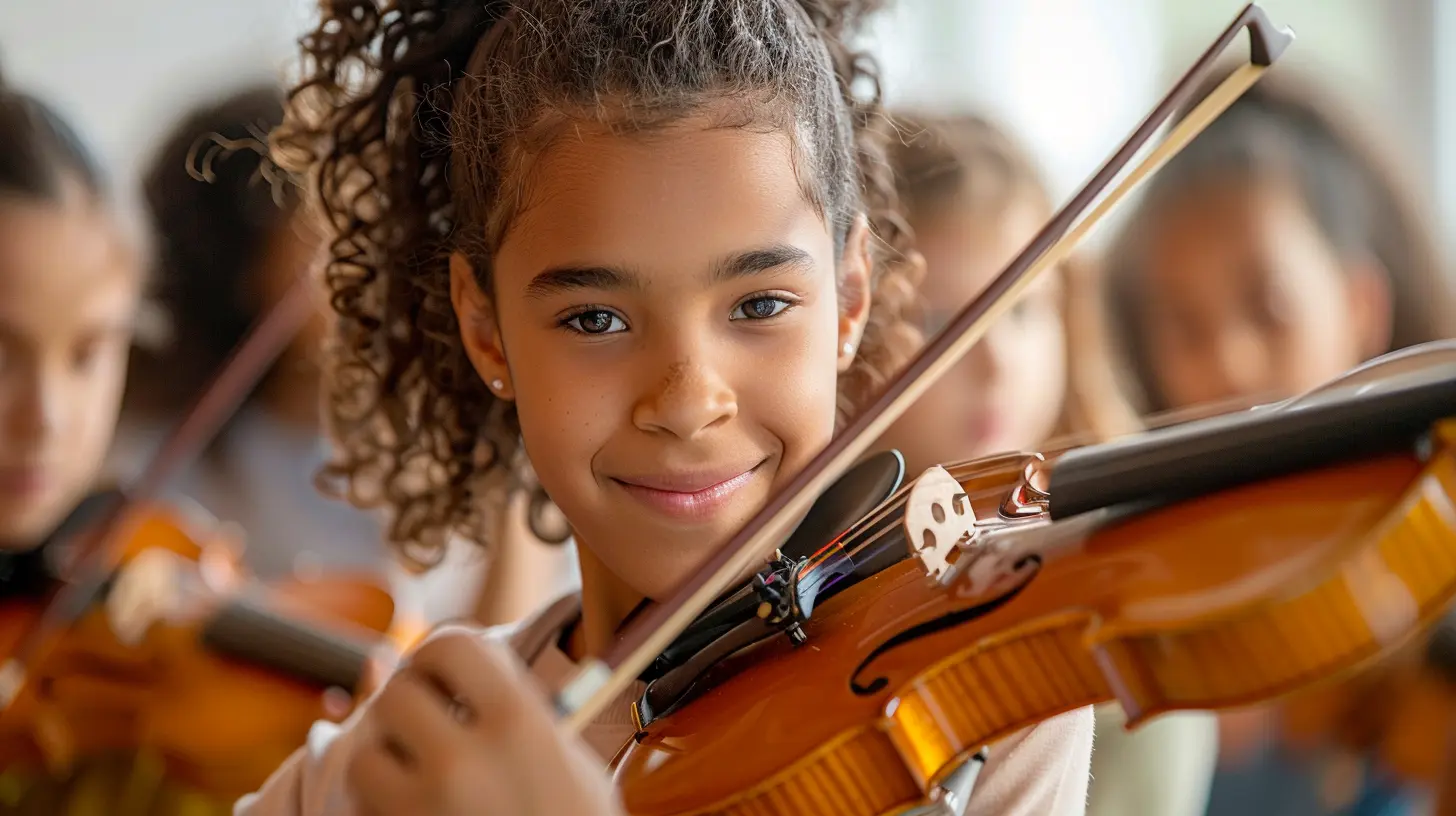
Why Performance is Key in Music Education
Imagine learning to cook but never actually preparing a meal. Sounds ridiculous, right? The same logic applies to music education. You might master theory, technique, and sight-reading, but without performance, it's all just abstract knowledge.Performance helps students bridge the gap between practice and real-world application. It forces them to apply their skills in a way that’s engaging, expressive, and—most importantly—interactive.
1. Building Confidence and Stage Presence
One of the biggest benefits of performing is how it shapes a musician's confidence. Stepping onto a stage, whether in front of classmates, family, or a packed auditorium, can be nerve-wracking. But each performance chips away at those nerves, making students more comfortable and self-assured.It’s not just about playing or singing the right notes—it’s about commanding a stage, engaging with an audience, and expressing oneself. Performance turns musicians into storytellers, helping them deliver music with emotion and connection.
2. Developing Essential Life Skills
Music performance teaches more than just music. It instills valuable life skills that apply far beyond the stage:- Discipline: Preparing for a performance requires practice, time management, and persistence.
- Resilience: Mistakes happen. Learning how to handle errors and keep going is a crucial life skill.
- Teamwork: Whether in a band, orchestra, or choir, performers must collaborate and listen to others.
- Public Speaking Skills: Performing in front of an audience improves communication and stage presence, which can be useful in professional and personal settings.
3. Enhancing Musical Expression and Interpretation
Music isn’t just about playing the notes correctly; it’s about conveying emotions, telling a story, and making an impact. Performance teaches students how to interpret music beyond the written score.Through performance, musicians experiment with phrasing, dynamics, and tempo, helping them develop their unique musical voice. This leads to deeper artistic expression—something that can't be fully achieved in private practice alone.
4. Improving Focus and Memory
Performing music requires intense concentration. Musicians must stay present, anticipate the next note, and react to the flow of the piece—all while keeping nerves in check!Studies have shown that musical performance strengthens memory, problem-solving skills, and cognitive function. Since musicians often memorize pieces, they develop mental sharpness that benefits other areas of life, including academics.
5. Encouraging Critical Listening and Feedback
Performing regularly allows musicians to hear themselves in a different context. When practicing alone, it's easy to gloss over mistakes. But in a performance setting, students become more aware of their strengths and weaknesses.Moreover, receiving constructive feedback from teachers, peers, and audiences helps musicians refine their skills. Learning to accept and apply criticism is an essential part of growth, both in music and in life. 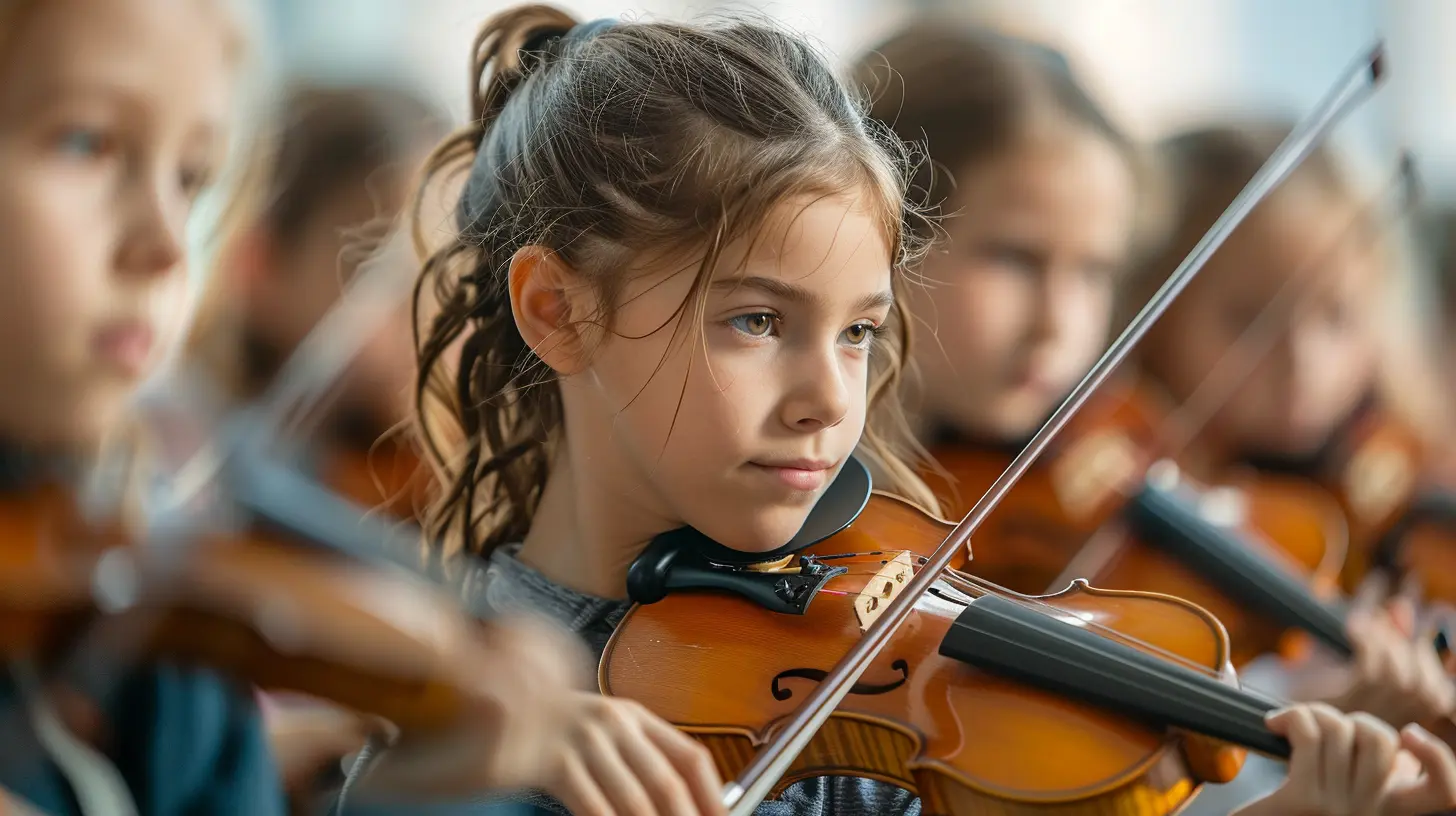
Types of Performance Opportunities in Music Education
Not all performances are the same, and variety is key to a well-rounded music education. Here are some common performance opportunities that help develop different aspects of musicianship:1. Solo Recitals
Solo performances allow musicians to showcase their individual skills. They help build confidence and stage presence while pushing students to refine their technique and interpretation.2. Ensemble Performances
Playing in a group—whether a small ensemble, orchestra, band, or choir—teaches students how to listen, blend their sound, and work as a team. It’s an essential skill for any musician.3. Competitions and Festivals
These events provide motivation and a sense of achievement. Preparing for a competition pushes musicians to reach higher levels of excellence, and winning (or receiving positive feedback) is a major confidence booster.4. Informal Performances
Not all performances have to be formal. Playing at family gatherings, school assemblies, or jam sessions with friends also counts! Informal performances create a relaxed environment for students to experiment and grow their confidence.5. Online Performances
With the rise of social media and virtual learning, students now have opportunities to share their music beyond physical stages. Posting performances online allows musicians to reach wider audiences and gain valuable feedback from different communities.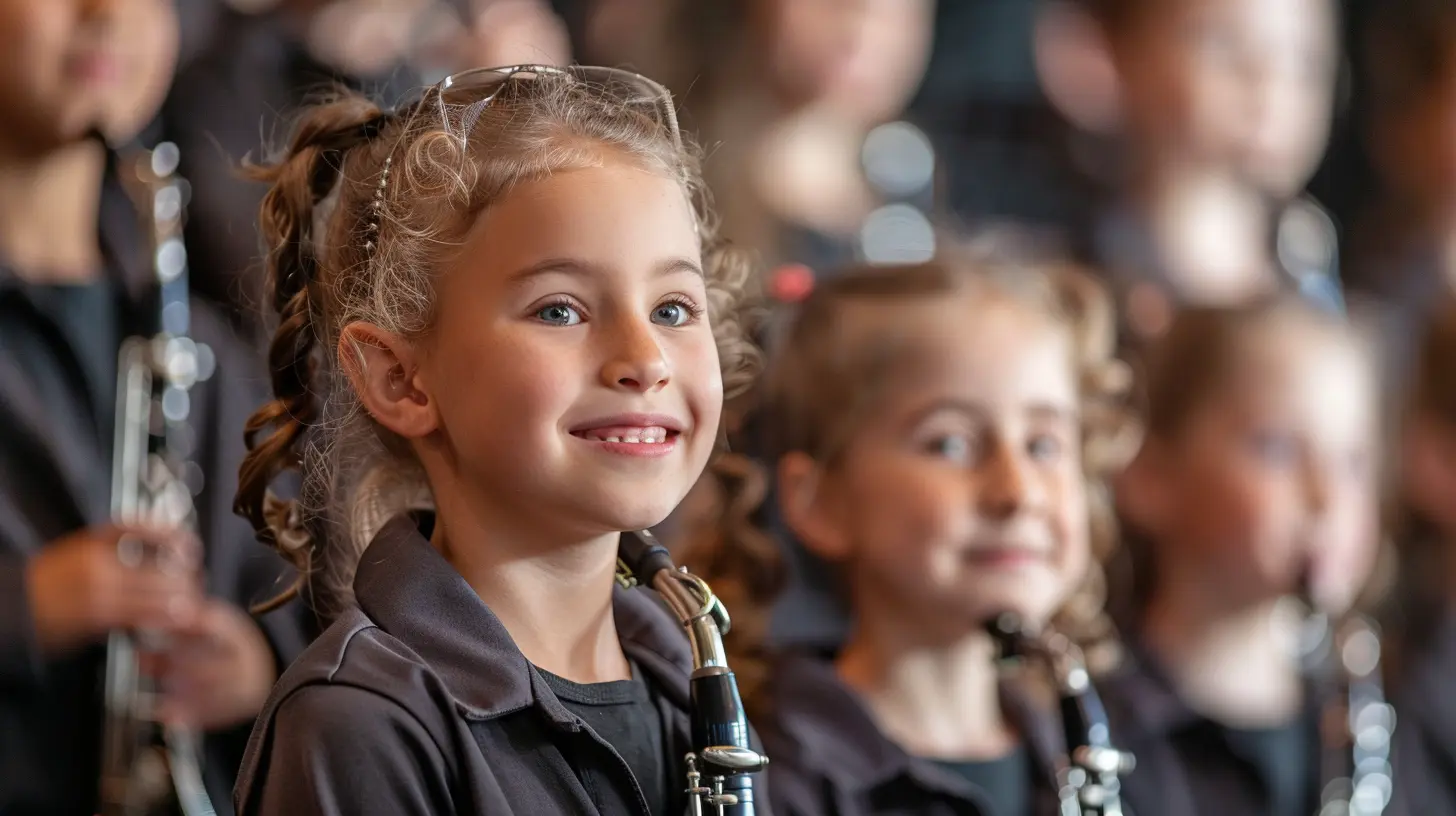
Overcoming Performance Anxiety
Many students struggle with stage fright, but the good news is that it’s completely normal—and manageable. Here are some tips to help musicians overcome performance anxiety:- Practice performing. The more you put yourself in performance situations, the more comfortable you'll become.
- Focus on the music, not the audience. Shift your attention to the piece you’re playing rather than worrying about who’s watching.
- Breathe and relax. Deep breathing exercises can help calm nerves before and during a performance.
- Visualize success. Imagine yourself performing with confidence and ease. Positive thinking can make a huge difference.
- Accept mistakes. Everyone makes errors in performance. The key is to keep going and not dwell on them. 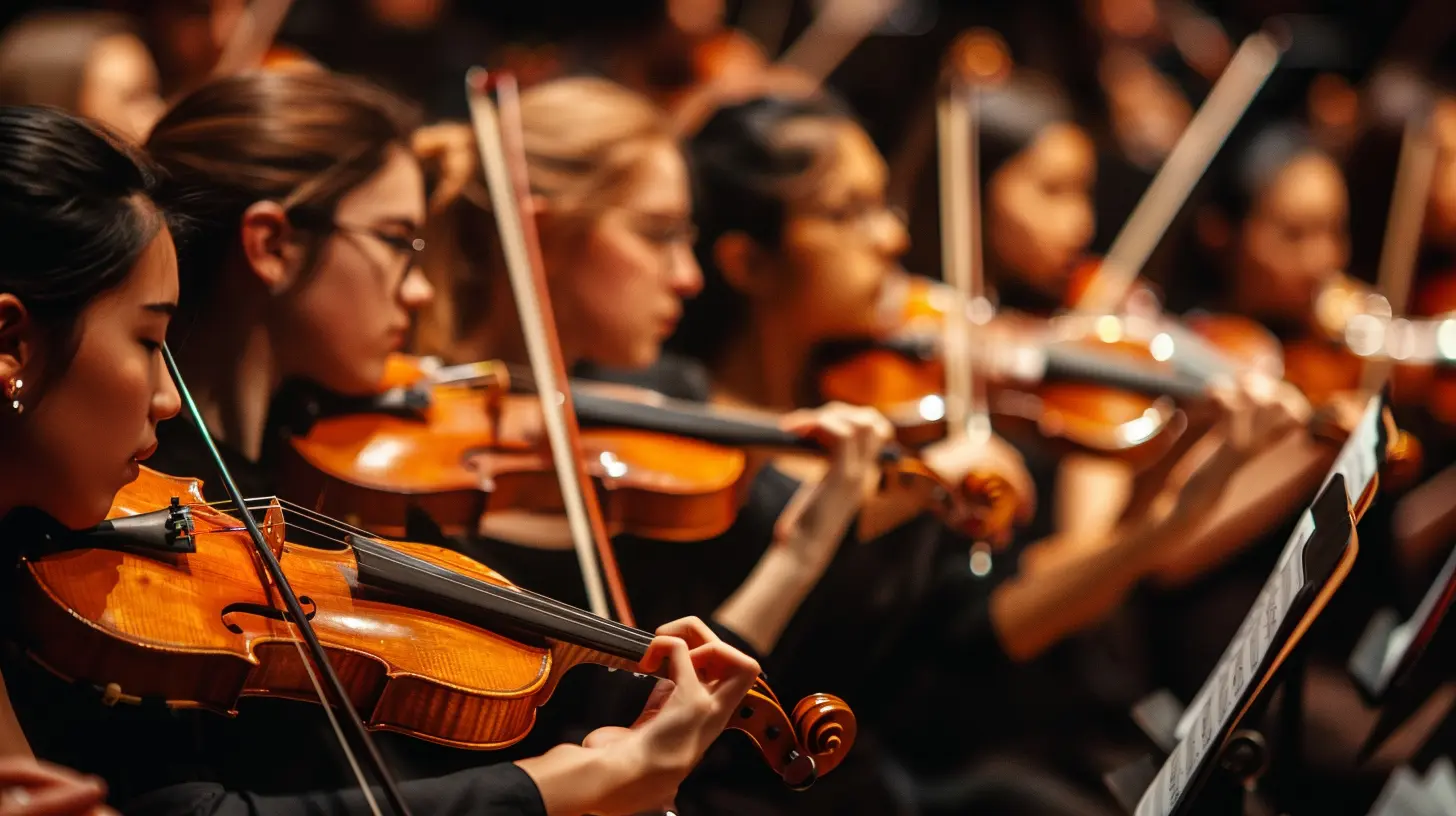
The Long-Term Benefits of Performance in Music Education
Even if a student doesn’t pursue a career in music, the skills gained from performance are lifelong assets. The confidence, discipline, focus, and creativity developed through musical performance carry over into careers, academics, and personal growth.Music education without performance is like learning a language but never speaking it. Performance brings music to life, making the learning process richer, deeper, and more meaningful.
So, if you're learning music, make performance a priority! Whether you're playing for an audience of one or a concert hall full of people, each performance is a stepping stone to becoming a better musician—and a more confident individual.

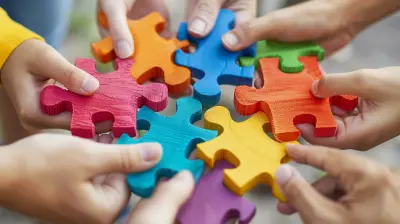




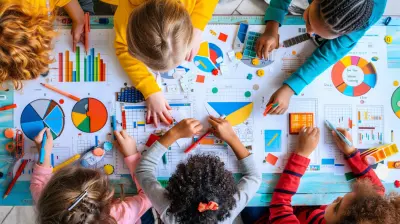


Harlow Porter
Great insights on the importance of performance in music education! It truly enriches learning experiences and fosters a deeper connection to the art. Thank you!
December 21, 2025 at 3:40 AM